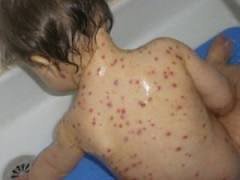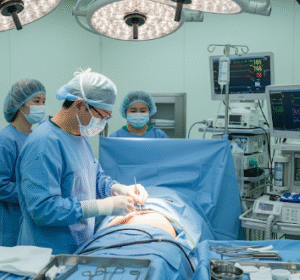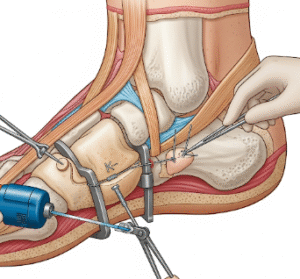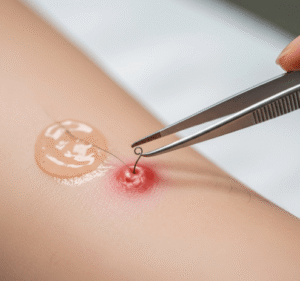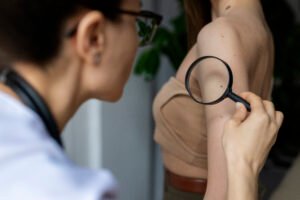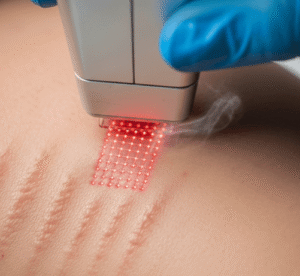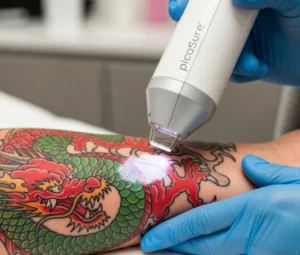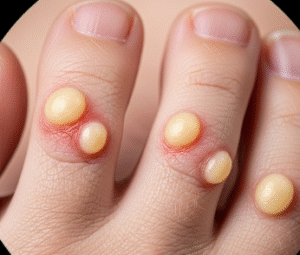Overview
Measles is a highly contagious viral infection caused by the measles virus, leading to fever, rash, and respiratory symptoms. In South Korea, widespread vaccination programs have significantly reduced measles incidence, but imported cases and outbreaks in unvaccinated populations can still occur. The country maintains vigilant public health monitoring, vaccination campaigns, and prompt clinical care to prevent large-scale outbreaks.
What is Measles?
Measles is a respiratory viral infection transmitted via droplets from coughs or sneezes. It primarily affects children but can occur in adults without immunity. Symptoms appear 7–14 days after exposure and can range from mild to severe. Complications such as pneumonia, encephalitis, and death are rare in Korea due to high vaccination coverage and access to medical care.
Symptoms
- High fever
- Cough, runny nose, and red eyes (conjunctivitis)
- Koplik spots (small white spots inside the mouth)
- Red, blotchy rash starting on the face and spreading downward
- Fatigue and body aches
- Diarrhea in some cases
Causes
- Infection with the measles virus, a paramyxovirus
- Transmission through airborne droplets or direct contact with an infected person
- Unvaccinated individuals or those without prior immunity
Risk Factors
- Being unvaccinated or partially vaccinated
- Travel to areas with active measles outbreaks
- Infants under 12 months before full vaccination schedule
- Individuals with weakened immune systems (e.g., chemotherapy, immunodeficiency)
Complications
- Pneumonia, a leading cause of death in severe cases
- Encephalitis, causing brain swelling and potential long-term neurological damage
- Severe diarrhea and dehydration
- Secondary bacterial infections
- Hospitalization or prolonged illness in high-risk populations
Prevention
- Measles-Mumps-Rubella (MMR) vaccination, routinely given in Korea at 12 months and 4–6 years of age
- Catch-up vaccinations for unvaccinated children and adults
- Avoiding exposure to infected individuals during outbreaks
- Good hygiene practices, including handwashing and covering coughs/sneezes
- Monitoring travel advisories for measles-endemic areas
Treatment Options in Korea
There is no specific antiviral treatment for measles; care is primarily supportive. South Korea provides comprehensive clinical management in hospitals and public health systems.
- Supportive Care
- Hydration and rest
- Fever management with acetaminophen
- Nutritional support, especially in children
- Monitoring for secondary infections
- Hospital Care
- Oxygen therapy for respiratory complications
- Intravenous fluids for severe dehydration
- Antibiotics for secondary bacterial infections if necessary
- Vaccination & Public Health Measures
- Routine MMR vaccination programs for children
- Post-exposure vaccination within 72 hours for susceptible individuals
- Epidemiological monitoring and outbreak control by Korea Disease Control and Prevention Agency (KDCA)
- Specialized Care in Korean Hospitals
- Seoul National University Hospital, Samsung Medical Center, and Asan Medical Center provide pediatric infectious disease services, isolation facilities, and critical care for severe cases
- Public health centers provide vaccination campaigns, community monitoring, and health education
- Follow-Up Care
- Monitoring for complications such as pneumonia or neurological issues
- Ensuring recovery and supporting immune system restoration
- Guidance on vaccination for household contacts

